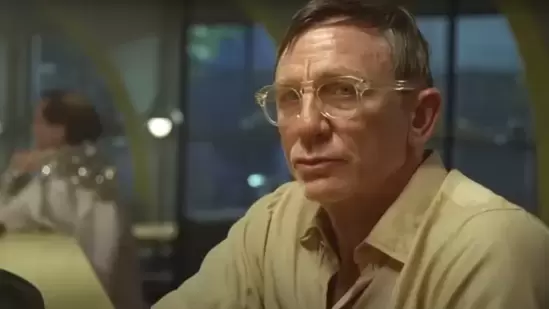Queer review: Daniel Craig gives career-best turn in Luca Guadagnino's thorny William S. Burroughs adaptation
Daniel Craig slips out of James Bond to give a haunting performance as Burroughs avatar William Lee in Queer. It is now streaming on Mubi.
Director Luca Guadagnino seems to have reached a phase in his career when he can turn his obsessions into feature films. Even prior to the phenomenon that was Call Me By Your Name, there was A Bigger Splash, and recently, there was the sexy sports drama Challengers. It is as if he is throwing one shot at the dark and hoping it lands somewhere.

If the outcome is something as dense and ravishing as Queer is, there's no complaining. There's simply no way a story like the one told in Queer, loosely based on the novella of the same name by writer William S. Burroughs, can be told without indulgence. Such a film would rather not exist. (Also read: Daniel Craig doesn't ‘care’ who plays the next James Bond or remember how many times he played the character)
The premise
Divided into three chapters and an epilogue, Queer is in many ways, Luca Guadagnino's most difficult film. It is heavy, formally restless and somehow more manicured than it would admit to be. The story begins in the Mexico of the 1940s, where we follow an American expat, a middle-aged writer named William Lee waste away his days getting drunk, crawling out of bars, and following gay men in an attempt to seduce them.
Lee meets the young and handsome Eugene (Drew Starkey), who seems queer too, but does not quite state it obviously. The first section of the film is spent in determining whether Eugene is interested at all, given how he occasionally glances at him but chooses to ignore Lee and spend time with another woman who might be his girlfriend. When they finally have sex, the passion burns the screen in animalistic savagery. Still, Lee doesn't know him fully.
What works
Guadagnino, teaming up with Challengers writer Justin Kuritzkes here on the script, works these scenes with impeccable style and verve. He is aided by Trent Reznor and Atticus Ross's wondrous score, while Sayombhu Mukdeeprom's cinematography lights up the manicured and artificial-looking outdoors with much-needed warmth. The biggest anchor here is the central performance of Daniel Craig, so free of self-consciousness and so daring in its vulnerability. It is the actor's career-best turn.
Unfortunately, Queer loses its balance in the second half when the two take a trip in search of a drug called yage. Lee's obsession becomes grating, his interpretive moves overwrought in the hands of the director. Leslie Manville's appearance later is less ludicrous than the obviously fake CGI snake that scares both men in the forest. It does not sit right.
Lee loses himself to his urges, but the film even more so. There's a visceral, hypnotic quality in the way Guadagnino carves this man and his unending need for connection, which does not quite add up with the hyper-real and modern elements that the film invests in. The two disintegrate and lead nowhere. Queer is somehow both beautiful and ugly, unaware what it wants to be. That's how obsession works. Guadagnino suggests, we accept both.
Queer is available to watch on MUBI.






